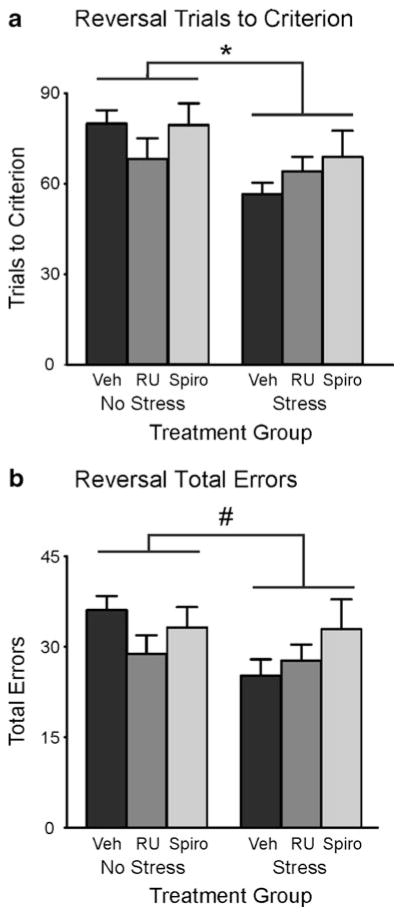Fig. 4.
Effects of RU38486 (RU) or spironolactone (Spiro) treatment on the performance of stressed and unstressed rats during reversal learning. a Trials to criterion. b Total errors. Rats exposed to acute stress took significantly fewer trials to reach criterion than did unstressed rats, regardless of drug treatment. Rats in the acute-stress group tended to commit fewer total errors than did rats that were not stressed; however, this effect did not reach significance. One rat in the stress + spironolactone group performed particularly poorly. When this rat was removed, the effect of acute stress on total errors reached significance (p = .026; see the Results for further details). Vehicle + no stress, n = 16; vehicle + stress, n = 13; RU38486 + no stress, n = 10; RU38486 + stress, n = 11; spironolactone + no stress, n = 10; spironolactone + stress, n = 8. *p < .05. #p = .11

